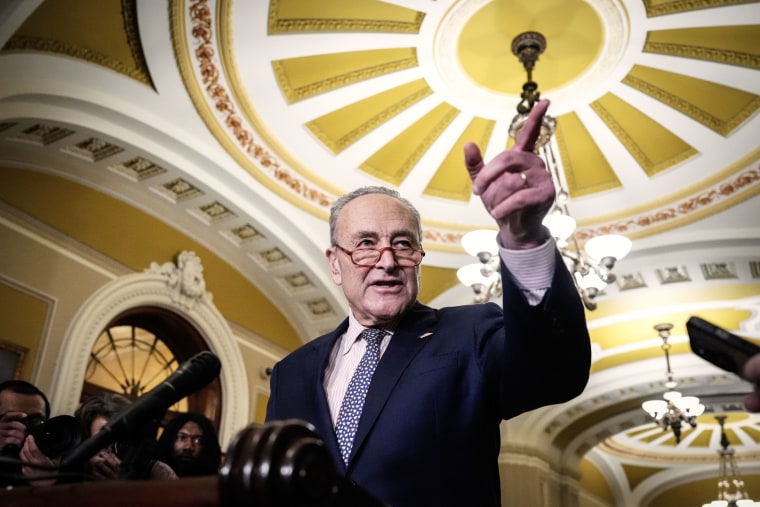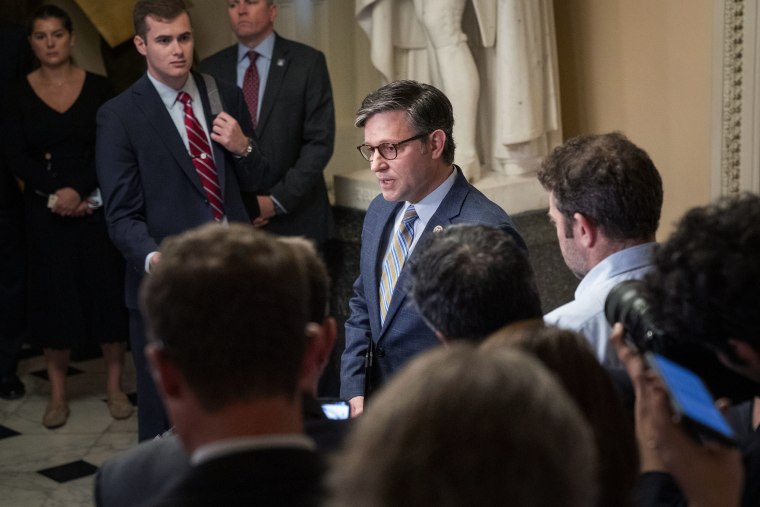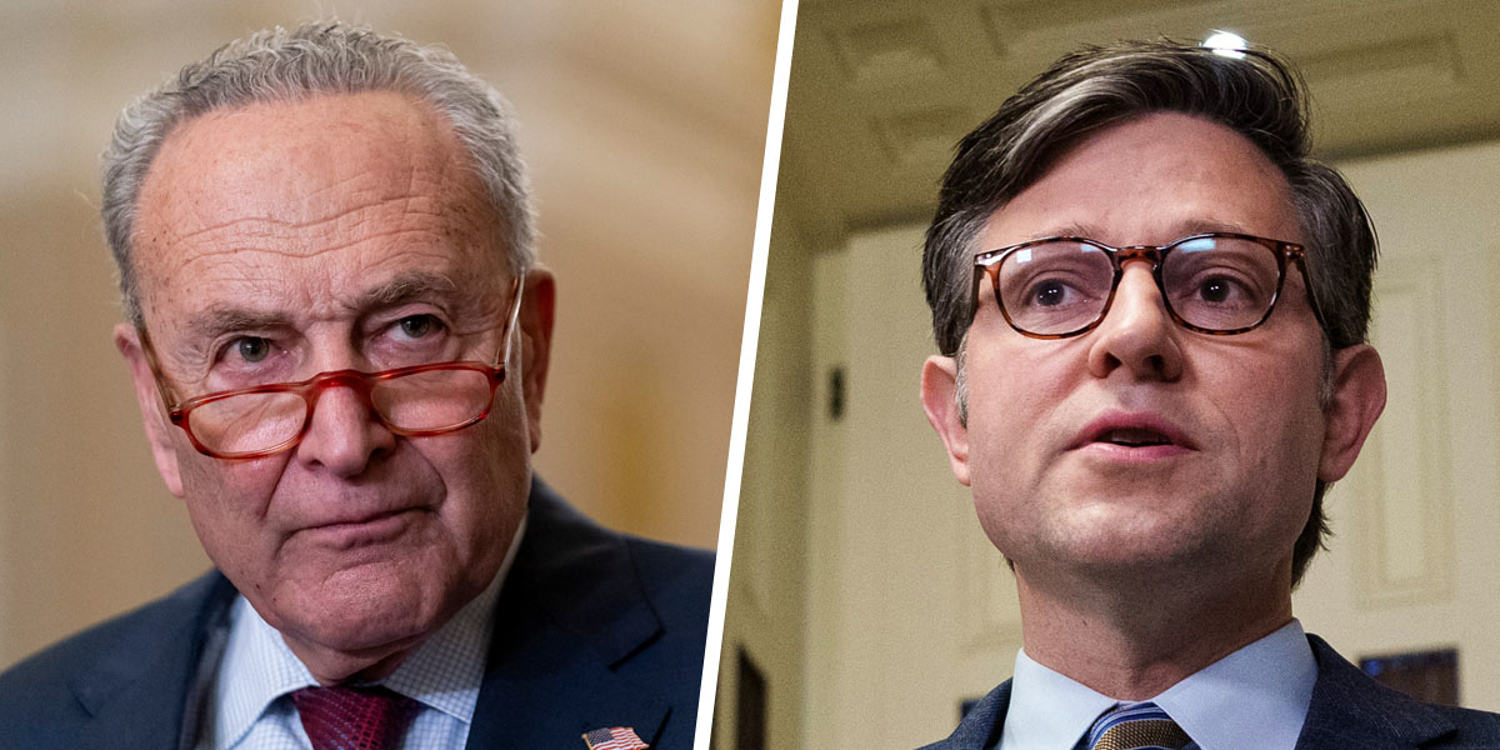WASHINGTON — The Democratic-led Senate passed a trio of government funding bills Wednesday with broad bipartisan support, a move that some senators hope will pressure the Republican-controlled House to change course from its partisan approach.
The Senate voted 82-15 to approve funding bills covering military construction and veterans affairs, transportation and housing, and agriculture. The vote breaks a lengthy logjam on government funding ahead of a Nov. 17 deadline to avert a shutdown.
“There is definitely uncertainty with regard to how the House will respond to our strong bipartisan votes on appropriation bills,” said Sen. Tammy Baldwin, D-Wis., a member of the Senate Appropriations Committee. “But we hope that they will conclude, especially seeing the strong bipartisan votes, that the only way forward is through bipartisanship.”
Baldwin said she hopes the progress will move Congress to approve a short-term funding bill to buy time for a “final product before the end of the year — and that’s simply the strategy that I am pursuing.”

Meanwhile, the House passed its fifth appropriations bill last week under new Speaker Mike Johnson after three weeks of paralysis. Republicans are taking a party-line approach that cuts spending and advances conservative policy measures that are opposed by Democrats in charge of the Senate and White House.
Congress needs to pass 12 appropriations bills — individually, together or on a short-term basis — to fully fund the government.
The Nov. 17 deadline to avoid a shutdown comes as Congress grapples with a $105 billion request from the Biden administration to fund U.S. aid to Israel and Ukraine, alongside measures to contain China and beef up domestic border security.
Johnson is seeking to break off the Israel aid and pass it as a separate measure. The Senate wants to tackle all of the new funding provisions together.
Earlier on Wednesday, Johnson met with Senate Republicans behind closed doors for about an hour, pitching his plan on everything from funding the government to sending aid to Ukraine. It was his first time formally meeting with most of his GOP colleagues in the chamber.
Johnson told senators he’s eyeing a short-term bill to keep the government open through Jan. 15 and force 1% discretionary spending cuts across the board. That automatic cut, set to take effect in April, is opposed by President Joe Biden, Democrats and Republican military hawks who note that it hits the Pentagon harder than non-defense spending.
Sen. Lindsey Graham, R-S.C., said moving up that spending cut would be “ill-conceived” as it “punishes the Defense Department and increases non-defense spending — which is absolutely a– backwards.”
But other conservatives, like Rep. Thomas Massie, R-Ky., and Sen. Rand Paul, R-Ky., say the 1% cut is fine and, if anything, Congress should cut deeper into the federal budget.
“It’s a tiny, tiny cut. People talk about it being a big deal. The people who believe in really big government,” Paul said. “It’s a pittance and doesn’t do much. I don’t think it’s enough of a lever.”
The future of all the funding items is uncertain. Some on Capitol Hill have wondered whether it’ll lead to a single short-term bill that attaches some of the supplemental funding requests.

“That’s the usual history of this place,” said Paul, who added that he hopes it will be different this time given Johnson’s course of action.
Sen. Ron Johnson, R-Wis., who met with the House speaker beforehand and introduced him to his colleagues at lunch Wednesday, came away from the meeting with the view that the House GOP leader favors a path forward that combines Ukraine funding with border security policies.
“I believe that’s his view,” Johnson said.
He said it should be no surprise that Mike Johnson told Republicans he needs to adjust his opposition to Ukraine aid now that he occupies the top job and has to reflect the views of his conference.
“He’s speaker of the House. He’s got a very slim majority. There is controversy over Ukraine,” the Wisconsin senator said. “But in particular, people make the very legitimate point that the Democrats and President Biden are more concerned about Ukrainian border security than our own.”
Sen. Mitt Romney, R-Utah, said after the meeting that Mike Johnson recognized that many Republicans back Ukraine aid. “It was not like we had to convince him,” he said. “He has the same point of view.”
Still, Republicans are divided on Johnson’s plan to split up aid to Israel and Ukraine; some proponents of both worry that it could leave Ukraine funding to fail.
But notably, Johnson told senators that he would “immediately, basically lose support” if he were to combine Israel and Ukraine aid, according to Sen. Josh Hawley, R-Mo.
And it’s unclear Biden’s border funding request can win enough Republican votes to pass either chamber without policy changes to tighten up the asylum system. GOP lawmakers have proposed a host of tougher rules aimed at discouraging migration.
Senate Judiciary Chair Dick Durbin, D-Ill., wouldn’t say what — if any — immigration policy changes are on the table for him until he sees them in writing from Republicans.
“I’m not going to comment on what I can’t see,” he said.
Source: | This article originally belongs to Nbcnews.com









